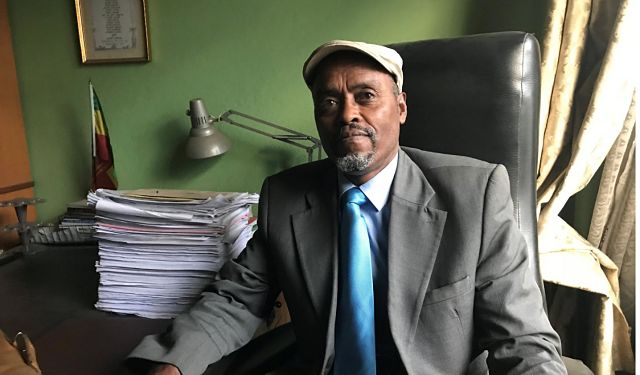 Ethiopian lawyer Wondimu Ebsa, who represented political prisoners detained during unrest in the country over the past three years, poses for a photograph during a Reuters interview in his office in Addis Ababa, Ethiopia July 25, 2018. REUTERS/Maggie Fick
Ethiopian lawyer Wondimu Ebsa, who represented political prisoners detained during unrest in the country over the past three years, poses for a photograph during a Reuters interview in his office in Addis Ababa, Ethiopia July 25, 2018. REUTERS/Maggie Fick
Ethiopia has released thousands of prisoners as a new prime minister reverses decades of security abuses. No-one knows how many were tortured.
But some of those torture victims are now talking openly – to the media, to their relatives and to their friends – about what happened to them after they were jailed, in many cases for protesting against the government.
Their stories raise a hard question for the government: how will it address the injustices committed by security forces behind prison walls?
Since coming to power in April, Prime Minister Abiy Ahmed, 41, has made peace with Eritrea, ended a state of emergency, freed political prisoners and announced plans to sell shares in state-owned firms to promote growth and create jobs.
Abiy acknowledges that many prisoners suffered abuses, which he has denounced as acts of “state terrorism”.
He has not, however, announced plans to investigate abuses committed by the security forces or set up a process for victims to seek redress. But he has preached forgiveness.
“I call on us all to forgive each other from our hearts. To close the chapters from yesterday, and to forge ahead to the next bright future through national consensus,” Abiy said in his inaugural address.
Rights groups that have documented the torture – from psychological torment to the use of water and ceiling hooks – say there must now be a greater focus on justice.
“Despite all the reforms, there have yet to be any detailed commitments regarding investigations into abuses or justice for victims,” said Maria Burnett of Human Rights Watch.
Since late 2015, when protests against ethnic marginalization and inequality began, tens of thousands of people were detained, according to Human Rights Watch.
The attorney general’s office and government spokesman Ahmed Shide did not respond to calls and messages requesting comment.
“WE NEED HELP”
Those who spent years imprisoned and were recently released say they are cautiously hopeful.

Recently released from prison, Ethiopian torture survivor and former political prisoner Keyfalew Tefera, 33, poses during a Reuters interview in Addis Ababa, Ethiopia July 17, 2018. REUTERS/Maggie Fick
—
Join the conversation on Twitter and Facebook.

























